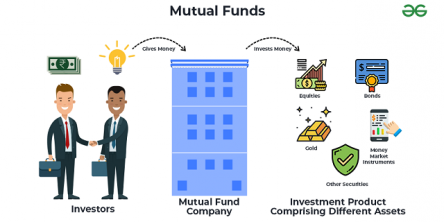Cloud Computing: Key Benefit for Finance Industry

The financial sector is among the most complex in the world owing to not only the sensitive nature of the data involved but also because of the countless factors that play an important role in its successful operations. As operations are rendered increasingly complex, businesses and companies operating in this sector are struggling to keep up with the demands of the sector as well as the customers they serve. A recent study by Finextra Research found that as many as 83 percent of companies in this industry believe their current infrastructure is unable to successfully tend to the business’ needs. The solution to these problems may be found in many modern solutions, but cloud computing is agreed to one of the most important of them all.
This is because as the world and this industry continue to become increasingly digital, it is nearly impossible to achieve and maintain high-quality digital services without a robust foundation — the kind that is near impossible to achieve without cloud computing. Now, that can’t be the only reason why cloud computing is widely deemed to be integral to the cause of the financial sector. You are right and it isn’t; there are countless other advantages cloud computing offers to this industry, some of which have been listed below.
1. Cost optimization: There’s not a business in the world that wouldn’t like to optimize costs, right? So, what does cloud computing in banking industry do in this regard? Well, it allows companies to rein in their costs when it comes to the server, data centers, and other IT infrastructure. Plus, it also does away with the need to invest in the maintenance of said infrastructure.
2. Scalability: Companies in the financial sector need to be able to scale up their operations rather quickly, owing to the fast-moving nature of the industry. With cloud computing, not only is seamless scalability made possible but also speed. This is because, with cloud computing, you only need to contact your service provider and upgrade or switch to plans that better suit your business’ growing needs. You don’t have to gather devices, set up additional infrastructure — nothing. Hence, the speed of scalability is achieved.
3. Regulatory compliance: Of course, the financial and banking industry is required to strictly adhere to very stringent regulatory requirements. Now, achieving compliance with these standards is quite the task, especially when you are working with your own, on-premise infrastructure. Whereas when you work with cloud services, you don’t have to worry much about compliance, because the service providers already implement a world of rigorous measures to see to it that all regulatory requirements are duly complied with.
4. Storage: Yet another critical advantage such companies gain from the switch to cloud computing is storage. You see, the sector generates a humongous amount of data every single day, which necessitates the use of truly large storage spaces and that is exactly what you stand to gain from cloud computing sans massive investments.
5. Security: Security is a must for virtually any digital entity, but it is one of the foundational elements of this sector owing to the nature of the data it deals with. Traditional, on-premise setups are much more vulnerable in this regard. Whereas with cloud computing, service providers take care to already integrate top-notch measures to safeguard their clients’ businesses and data.
The global economy is a continually evolving entity meaning that the financial sector must make use of only the best tools available at our disposal. Tools such as cloud computing, which as evidenced from the discussion above, can help businesses operating in this sector in countless ways, such as enabling round-the-clock access no matter where you are, optimization of business processes and so much more. This is why cloud computing in the banking industry has become such a massive hit over the years. So, if you too wish to advance your business in this cut-throat financial market, you know cloud computing is the way forward.
Similar Articles
Car ownership offers convenience and mobility, but it also incurs costs that shouldn’t be taken lightly. Auto finance agreements allow people to own vehicles, however these contracts can be tricky to decipher.
For many ambitious Australian graduates, the dream of attending an Ivy League institution or a world-renowned global university represents the pinnacle of academic and professional aspiration
International transfers are essential for SMEs operating across MENA and global markets, yet they carry risks that can disrupt operations severely.
Most bookkeeping mistakes aren’t dramatic. They don’t show up as obvious errors on day one. Instead, they surface slowly, as numbers that feel slightly off, reports that take longer to prepare, or fixes that keep coming back.
Most business owners set up their first business banking account without a second thought. They go with whatever bank they personally use, or whatever bank their accountant mentions - and done deal.
Outsourcing debt collection boosts recovery rates, ensures compliance, and preserves client relationships—freeing your team to focus on core business tasks.
Save money on home & business essentials with bulk wholesale! Discover tips, product categories, and deals to maximize your savings.
Loud budgeting has taken over social media, with people openly discussing spending habits, saving strategies, and financial struggles. While this trend encourages transparency, it also adds pressure to meet certain expectations
Securing your financial future has become a necessity in today's world, and investing in mutual funds is one of the most popular ways to grow your wealth over time. Managing your money and investing in potential funds has become convenient and seamless with the help of the right online platforms









